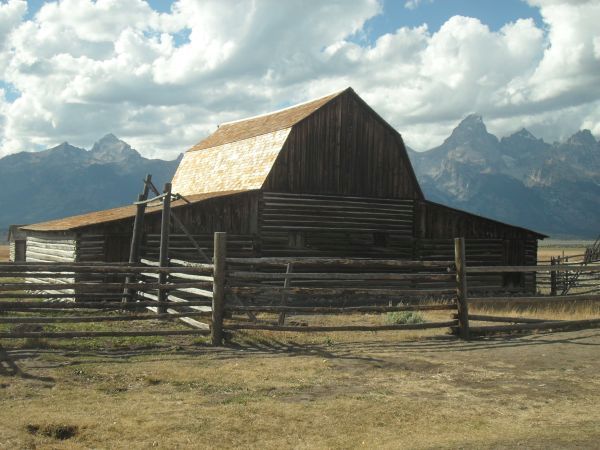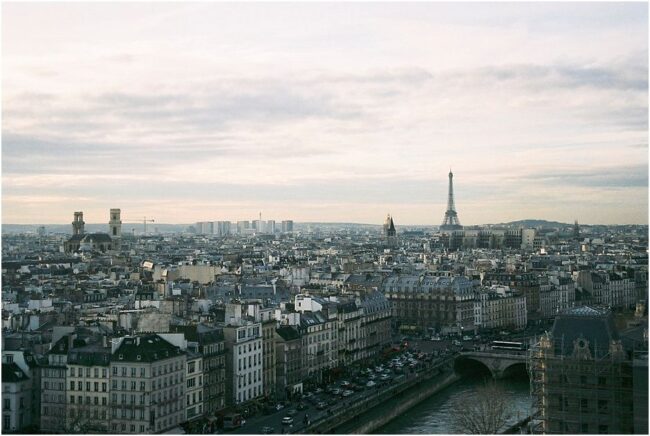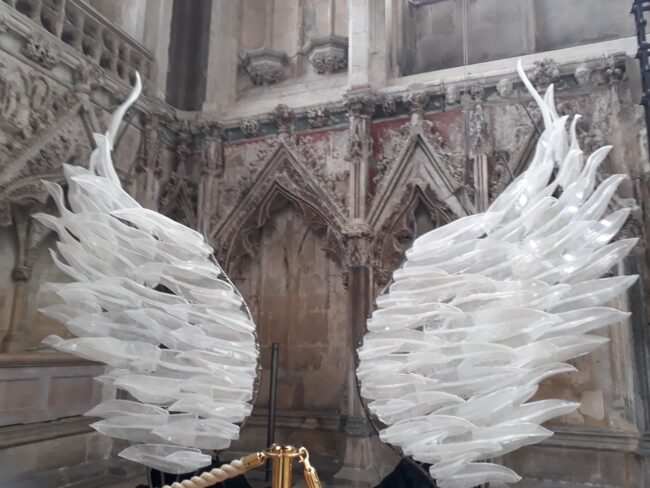The following are available as courses or as day schools and can also be adapted to create two-hour taster sessions. No prior knowledge of the subject is necessary as different ways of understanding film are considered in every course.
If your organisation is interested in offering any of these courses then please contact Sue for more details.
Jane Austen
It’s over 200 years since Jane Austen died and she is still as popular today as she ever was. This course explores different versions of Pride and Prejudice as well as classic adaptations of all Austen’s other works from the youthful Love and Friendship ending with her final novel Persuasion. A range of themes are considered including:
- Why Austen is still so popular today
- The Marriage Plot (including modern adaptations such as Clueless, Bridget Jones’ Diary, The Jane Austen Book Club
- Novel to Film — considerations during the adaptation process
- The importance of costume/costume drama
- Austen’s autobiography and how this is used in her writing and how Becoming Jane, Julian Jarrold’s 2007 film and Miss Austen Regrets (2007 BBC drama) depict fictionalised versions of her life.
![]()
The Films of Audrey Hepburn
A celebration of one of our best-loved actresses, examining her career from bit parts to Hollywood stardom and beyond. Themes will include:
- Audrey and fashion/the importance of costume
- Transformation — the Cinderella theme in the films of Audrey Hepburn
- The Hollywood Star System
- The Hollywood Musical
- Femininity and Difference
- Audrey in Paris
- Audrey’s Directors
- Influence and Legacy
![]()
Cities On Screen:
Berlin, Paris, London, Tokyo And San Francisco
A chance to do some armchair travelling! These sessions look at how these iconic cities have been represented on screen by both native and non-native film-makers. As well as showing the cities at their best and worst, the history and development of the cities is also explored, supported by a wide range of fascinating film clips.
![]()
The Western
An exploration of the good, the bad and the ugly in this analysis of the classic Western genre. We will explore how changing American identity is expressed in a range of films from The Great Train Robbery to The Searchers, Rio Bravo, High Noon, The Wild Bunch, Butch Cassidy and the Sundance Kid, The Assassination of Jesse James by the Coward Robert Ford and Slow West. This course looks at the changing fortunes of the western and also the changing focus of this much-loved genre.
![]()
British Film In The 1960s —
Get Ready To Swing
At the beginning of the 60s British cinema was in transition in a country ready for change. This course explores a wide range of films in order to gain a greater understanding of the different forces at play both politically and socially. The New Wave films of the 1950s continued into the early 60s depicting the Angry Young Men of Britain’s working class while blacklisted American Joseph Losey brought his outsider’s eye to bear on the British class system in the The Servant, Julie Christie became a screen icon in Darling and Dirk Bogarde highlighted the perils of oppression and discrimination in Victim.
This decade also saw the beginning of Bond with Sean Connery blasting onto the screen in Dr No. Taboos were being broken, change was in the air, Beatlemania was getting into its stride, and London was ready to swing.
The second half of the decade was characterised by an ever widening generation gap and an escalation of social change. The buzz about all things British attracted many directors to the UK, with Italian director Michelangelo Antonioni’s Blow Up reflecting the “swinging London” scene. As the sixties drew to an end the Carry On team carried on doing what they did best in Carry on up the Khyber, Ringo Starr and Peter Sellers starred in the madcap experimental The Magic Christian and Nicolas Roeg’s Performance with its psychedelic dream turned nightmare brought the decade to a thought-provoking end.
![]()
The Gothic Imagination On Screen
Vampires, monsters, haunted houses, sinister children and a wealth of characters who just refuse to die… Come and explore the gothic on screen with clips from Dracula, Psycho, Rebecca, Frankenstein, Theatre of Blood, The Innocents and many more.
![]()
The Films of Billy Wilder
Austrian-born Billy Wilder was one of the many Jewish exiles from Weimar Germany where he began his career as a screenwriter with a charming adaptation of Emil and the Detectives. Arriving in Hollywood in 1933 he quickly made his mark with some stunning films including Double Indemnity, Some Like it Hot, The Apartment and Sunset Boulevard. This session will explore the life and work of this much-loved director.
![]()
Classics of French Cinema
Discover the marvels of French cinema from pre-war classics such as Les Enfants du Paradis and Le Jour se leve to the influential post-war New Wave film-makers Godard and Truffaut and the humour of perennially popular Jacques Tati as well as a consideration of modern classics such as Amelie and Hidden.
![]()
New Wave Film —
Independence and Rebellion
This day explores the New Wave movements which swept through the industry after the Second World War. From Japan to America and Europe New Wave film-makers offered alternatives to the studio-bound mainstream offerings with their heady mix of youth, jazz, rebellion and innovation.
![]()
Creative Writing and Film
Film is an inspirational medium and this day school will use clips from films as diverse as Stalker, Brief Encounter, A Matter of Life and Death, Thelma and Louise, Night of the Hunter and The Cabinet of Dr Caligari to generate writing from poetry and haiku to lifewriting/memoir and short stories. The day will also provide an opportunity to look at poetry and prose by writers who have been inspired by the world of film. No previous experience is necessary — the exercises in this innovative and unusual day school are suitable for all levels.
![]()
Nostalgia, Romance and Intrigue:
The Role of Trains in Film
As far back as 1895 trains have fascinated film-makers.
This day examines how trains have almost become characters in their own right, providing places for fantasy and reflection; escape and romance; murder, paranoia and intrigue as well as moments of high comedy. Trains have also been a popular theme for documentary film-makers as a vehicle for propaganda and praise of the heroic working man.
![]()
Everything You Wanted To Know About Film But Were Afraid To Ask
An introductory course which looks at the development of film from 1895 to the coming of sound at the end of the 1920s before turning to more contemporary films to consider the role of costume and music on narrative, key directors, glamorous stars and vital film movements such as German Expressionism, film noir and New Wave in order to come to an in-depth understanding of the layers of meaning behind those flickering images…
![]()
The Golden Age of Hollywood
Immerse yourself in classic Hollywood — glamorous stars, powerful studio heads, romance and escapism, gangsters, hard-boiled detectives, scandal, censorship and the stories of the exiles who found refuge and an outlet for their creativity in the hedonistic world of the studio system.
![]()
Maidens and Monsters:
Fairytales on Film
Company of Wolves — The Wizard of Oz — Pretty Woman
Night of the Hunter — Pan’s Labyrinth — Star Wars
Blanca Nieves — Shrek
Every year more film versions of classic fairytales are released. This course explores why these narratives still work for us today and how different countries address these universal themes, sometimes in the most surprising ways.
![]()
Dames, Dives and Dupes —
The Enduring Appeal of Film Noir
With its tough, spiky women, often flawed male heroes, distinctive cinematic style and highly ambiguous moral tone film noir has a special place within the psyche of filmgoers of all generations. This course explores 1940s and 50s classics — Sunset Boulevard, The Killing, Mildred Pierce and Vertigo as well as examples of neo-noir and colour noir such as Mulholland Drive, Blue Velvet and Blade Runner.
![]()
To Infinity and Beyond…
The World of Science Fiction
Modern fairytales, Russian propaganda, Shakespearian robots, Cold War fears of alien invasion, feminist mothers in outer space and a rocket through the eye of the Moon… There’s much more to science fiction than meets the eye. This course explores how this genre reflects our inner fears, hopes and desires.
![]()
Unsung Heroes — the role of music and costume in film
Dorothy without her red shoes? Holly Golightly without her little black dress? Psycho without Bernard Herrmann’s score? Find out more about the vital rôles music and costume play in film narrative, including plot and character development, symbolism, intertextuality and authenticity. Discover the designers, costumiers and composers behind the magic of films such as The Adventures of Priscilla, Queen of the Desert, Roman Polanski’s Oliver, Blade Runner, Star Wars, Nosferatu, as well as a case study of three different versions of Romeo and Juliet.
![]()
Demons and Divas:
German film between the wars
The films of an angst-ridden Germany during the Weimar Republic influenced both European and Hollywood directors with its strong aesthetic. This course will explore how the traumas of the First World War were expressed in films as diverse as Nosferatu, The Cabinet of Dr Caligari, M and Metropolis. It was also an era of escapism through decadence, artistry and innovation with Marlene Dietrich in Blue Angel and Louise Brookes in Pandora’s Box evoking the glitz and glamour which inspired Lisa Minelli’s unforgettable performance in Cabaret (1972).
![]()
Road Movies — Searching and Finding…
From “Grapes of Wrath“, “Easy Rider” and “The Wizard of Oz” to “Thelma and Louise” and “O Brother Where Art Thou?” road movies reflect the social and economic changes which Americans experienced in the last century and highlight their volatile relationship with the land. This course will explore these ideas and discuss whether the road movie can exist outside America.
![]()
Adaptations : The Film of the Book
Whether adapting Shakespeare, Psycho or Atonement, the film-making team have a number of decisions to make. This course will examine a wide range of clips from a number of films in order to gain greater understanding of how film-makers successfully bring adaptations of novels, plays and short stories to the screen. Ways of “reading” a film will also be explored and the socio-economic and political context in which the film was made will also be considered.
![]()
In A Class of Its Own
This course examines representations of class and gender in British film from the 1940s to the present day and considers how changes in representation reflect changes in Britain’s socio-economic identity. A wide range of films, from “Brief Encounter”, “Saturday Night, Sunday Morning”, “If” “Atonement” to “The Full Monty“, “Somers Town” and the films of Mike Leigh will be used to illustrate these ideas.
![]()
Film History : Four Iconic Directors — Hitchcock, Lean, Richardson, Losey
The importance of four influential directors will be assessed in terms of the shaping of a British film identity and how they, in turn, were influenced by both European and Hollywood film industries. Hitchcock’s early film career, including silent films, will be discussed, as will his American years and how he retained a quintessential Englishness even within the Hollywood studio system. Richardson’s pivotal role in the British New Wave movement and Lean’s fascinating career of both domestic and epic proportions will be considered as well as Losey’s outsider’s viewpoint as a blacklisted American working in Britain during the Cold War years.
![]()
Millions Like Us : Cinema and
Propaganda in World War II
The home-front genre looks at the men, women and children left behind in a beleaguered Britain during the Second World War. This course discusses clips from a wide range of feature films including Millions Like Us, Went the Day Well, Brief Encounter, A Canterbury Tale and Green for Danger as well as some important documentary footage. The rôle of the Ministry of Information in terms of politics and propaganda will be discussed and the sessions will also consider contemporary responses to this period.
![]()
Shakespeare on Film
Why does Shakespeare still appeal to contemporary audiences? Is Hamlet merely a Freudian soap opera? Is Richard III a gangster? How does Kenneth Branagh interact with Olivier’s legacy? Can Shakespeare cross cultural boundaries? All these questions and more are considered in this journey into the filmic world of Shakespeare.
![]()
Dickens on Film – A Celebration
Quirky characters, memorable lines, sinister cityscapes, romance, horror, the supernatural, mystery, melodrama and Christmas! This course explores the life, work, social conscience and obsessions of one of our greatest writers whose work was adapted for the screen as far back as 1901. Jackie Coogan as Oliver? Lon Chaney as Fagin? Come and see all your favourite characters in surprising guises, muppets included!
![]()
World Cinema – Japanese Film
From Godzilla to Ghibli
Following American intervention in both the 19th and 20th centuries Japan experienced anxiety at the potential loss of traditional society which its national cinema reflects right up to the present day. This course also examines how Japan influenced film in the West and gives an insight into the fascinating and complex worlds of geisha and samurai.
![]()
Silents Are Golden
This course will provide an overview of the silent film era, particularly the socio-historical context and consider the impact of “talkies” by looking at films such as Blackmail, Modern Times and Singin’ in the Rain. We will also see how the “language” of film was established very early on in film history by pioneering film-makers. The course will focus in particular on the excellence of British silent film directors such as Alfred Hitchcock and Cecil Hepworth and will also examine the lasting influence of Soviet and German film-makers and their impact on films as diverse as Bladerunner (1982), Tom Jones (1963), Psycho (1960) and Le Quattro Volte (2011).
![]()
Strange Visions :
The World of David Lynch
David Lynch is one of the most creative, innovative and disturbing contemporary directors. His films conjure a strange world of haunting music, Hitchcockian Doubles, quirky characters and dream sequences. This course will examine his work in depth, focusing on Eraserhead, Dune, Elephant Man, Blue Velvet, Wild at Heart, Twin Peaks/Fire Walk With Me, Mulholland Drive, Inland Empire and Lost Highway.
![]()
True Brit —
Michael Balcon and Ealing Studios
Ealing Studios became is mostly known for its classic comedies but as well as these, this course look at the wider range of films produced by these studios such as Cheer Boys Cheer, It Never Rains on Sunday, Pool of London, The Blue Lamp etc and consider the influence of the long-serving head of the studio, the late, great Michael Balcon who was instrumental in creating a strong identity for British cinema during the Second World War and its aftermath.
![]()
Silent Comedy Classics
Comedy was a key element in the new-fangled world of the moving pictures. This course will consider why it was so important by looking at the very early days of comedy and the idea of cinema of attraction before turning to the classic comedians such as Charlie Chaplin and Buster Keaton, Oliver Hardy in a rare role as a romantic lead, Harold Lloyd and classic Laurel and Hardy.
![]()
Hitchcock’s Women – The Blonde, the Brunette, and Mother Makes Three…
Hitchcock is well known for his fascination for icy blondes and his representation of women on screen and the fates they suffer is a rich topic for discussion. This course will look at the evolution of the Hitchcock blonde from The Pleasure Garden (1927), culminating in Marnie (1964) with Hitchcock’s on and off-screen obsession with actress Tippi Hedren. The blonde is often contrasted with the warm, sensual brunette and, of course, the subject of Hitchcock and women cannot ignore his representation of the mother, notably the ‘mother figure’ in Psycho! The influence of Alma Reville, Hitchcock’s talented wife, and the appearance of Patricia Hitchcock in her father’s films will also be considered.
![]()
Close Readings of Classic Films
This course examines a classic film in detail each week, looking at the background to the film and tracing its influence. You can tailor the course to any length you like by choosing from the following films to focus on : The Artist, Vertigo, The Full Monty, The Servant, Psycho, Thelma and Louise, Brief Encounter, Atonement, Night of the Hunter, The Seven Samurai, The Wizard of Oz, If… and Blade Runner.
![]()
If your organisation is interested in offering any of these courses then please contact Sue for more details.


